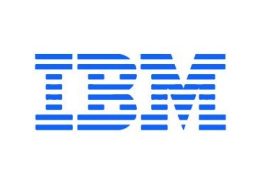This article/transcript is a guest contribution from Consuelo Mack's Wealthtrack, of last week's interview with legendary fund manager, Hersh Cohen, of Clearbridge Advisors.
CONSUELO MACK: This week on WealthTrack’s Great Investor series, ClearBridge Advisors’ Hersh Cohen discovers a treasure trove of income streams in some of the best known names of business. Where to find income is next on Consuelo Mack WealthTrack.
Hello and welcome to this “Great Investor” edition of WealthTrack. I’m Consuelo Mack.
Interest rates in the U.S. are near historic lows. Yields on ten year Treasury notes have been falling for the last decade, recently hovering around 3%. But despite diminishing income payments, investors have been piling into bond funds. For the second year in a row, bond funds are attracting record amounts of cash. Last year, net inflows into U.S. taxable bond funds hit $384 billion versus a mere $5 billion for stock funds. So far this year, bonds are bringing in $152 billion versus only $24 billion for stocks. The desire for return “of” capital has replaced the old return “on” capital focus for investors.
So far that switch has paid off. Bonds are outperforming stocks. The S&P 500 declined nearly 7% in the first half of the year, while ten year Treasury notes have provided a total return- that is price appreciation plus interest- of 9.36%. And a widely followed bond index has returned more than five percent. One fascinating factoid brought to our attention by the research mavens at Bianco Research is that the S&P 500 has not outperformed three-month Treasury bills since May 27th of 1997- that is 13 years! Which brings up the question: how long can low yielding bonds deliver better returns than some of America’s highest quality blue chip companies which have dividends offering competitive yields and a history of increasing dividends every year?
That is the question this week’s Great Investor guest Hersh Cohen will answer. Hersh recently retired as the co-manager of the Partners Appreciation Fund which he ran for 31 years, first at Smith Barney, then at Legg Mason ClearBridge Advisors. The fund was named to the exclusive Forbes Honor Roll eight times and Hersh was a finalist for Morningstar’s Equity Fund Manager of the Year in 2008. He is now chief investment officer of ClearBridge Advisors and co-manages its Equity Income Builder and Dividend Strategy funds. Now Hersh rarely appears on television and only does so when he feels he has an important story to tell. I asked him why now is one of those times.
HERSH COHEN: I think that there's a powerful opportunity that is generally being ignored, and that is in these high-quality, I'll call them blue chip stocks, but high-quality companies with high returns on equity, low debt levels, where the dividends are not only currently high in relation to all other asset categories, but we think, sustainable and possibly growing. Many of them have a history of growing, for long periods of time. And, I've not seen a period when these stocks are as cheap as they are, relative to fixed income securities, relative to other kinds of securities, since probably the early 1980s.
CONSUELO MACK: One of the benchmarks that you've mentioned to me earlier was the fact that a lot of these stocks have dividend yields that are higher than the yield, the interest rate yield, on the 10-year Treasury note.
HERSH COHEN: Many of them. Many of them.
CONSUELO MACK: And that is an unusual occurrence, correct?
HERSH COHEN: In my memory, the last time I saw that, and I wasn't in the market yet, although some people would say I would, I wasn't in the market yet, it was the mid-'50s. And from the Depression until the late 1950s, stocks always yielded more than bonds, because they were thought to be a riskier asset category. And when the great bull market of 1949 began, finally it dawned on people that stocks maybe weren't as risky, and so you had this crossover of the stock-bond yield spread, and it never looked back. And, now you actually have it again. Now, you could argue, are Treasuries artificially depressed--
CONSUELO MACK: Well, are they?
HERSH COHEN: I don't know. I don't know.
CONSUELO MACK: Yeah. But does it matter?
HERSH COHEN: No. Because, you ask yourself, would you rather own a 10-year Treasury, yielding, call it 3% even though as we're recording this, it's under that, for the next 10 years, where you know you're going to get your money back and you get 3%, would you rather own Exxon? Would you rather own Johnson & Johnson? Would you rather own Wal-Mart? Would you rather own Travelers Insurance? Would you rather own Procter & Gamble? Would you rather own 3M? All of whom have increased their dividends on a consistent basis, and are yielding anywhere from 2.5 to 4.25%. Kimberly-Clark, 4.25% dividend; Heinz, 4% dividend. Are they going to be here 10 years from now? Yeah. Are the dividends going to be higher? I strongly believe so. There's a history of raising dividends there. Kimberly-Clark just raised its dividend 10% this year. I mean, there's a whole list of these things. Companies have raised their dividends. I have a little cheat sheet in my pocket, in case I forget, but Procter & Gamble, 10%; Johnson & Johnson, 10%, all within the last few months. That's not a bad story.












